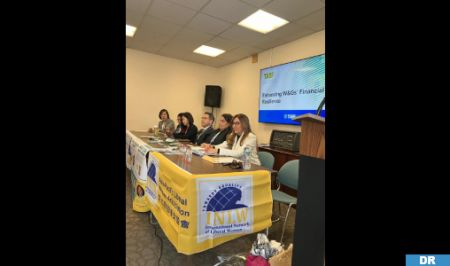Violations of Women’s Rights in Tindouf Camps Denounced in New York
The violations suffered by women at the hands of “polisario” separatists in the Tindouf camps were denounced during an event organized in New York by the International Network of Liberal Women (INLW). In a declaration adopted at the end of a side event held on the sidelines of the 68th session of the UN Commission on the Status of Women (March 11-22) under the theme “Exploring the feminization of poverty”, the INLW spoke out against the violence committed against the women sequestered by separatist militias in these camps located in the southwest of Algeria. This network, which brings together international experts and activists, said it was alarmed by the “seriousness” of the conditions in which these women live, as well as by the “very high” tension in the camps which has given rise to a series of sit-ins and demonstrations. The International Network of Liberal Women has, in this context, called on the international community to act urgently to put an end to these gross violations of women’s rights in the Tindouf camps and to organize hearings for victims of violence and rape, in order to prosecute the criminals responsible for these abuses. The INLW also called for the release of all women sequestered in the Tindouf camps. Speaking at the opening of this event marked by the participation of experts, parliamentarians and representatives of UN member states, the INLW president, Khadija Oum Bachair El Morabit stressed that women in the Tindouf camps are subject to violations of their most basic rights, to rape, discrimination, extreme poverty and human trafficking. She praised the courage of certain women who defied threats to denounce these abuses committed against them by the separatist militias of the “polisario”, citing in this regard the case of the young Sahrawi, Khadijatou Mahmoud, victim of a rape by the man called Brahim Ghali, leader of the “polisario” separatists. El Morabit further noted that the injustices suffered by women in the Tindouf camps constitute a “shame” in the 21st century, since the host country of the camps where these abuses are perpetrated prohibits any contact with the victims.

